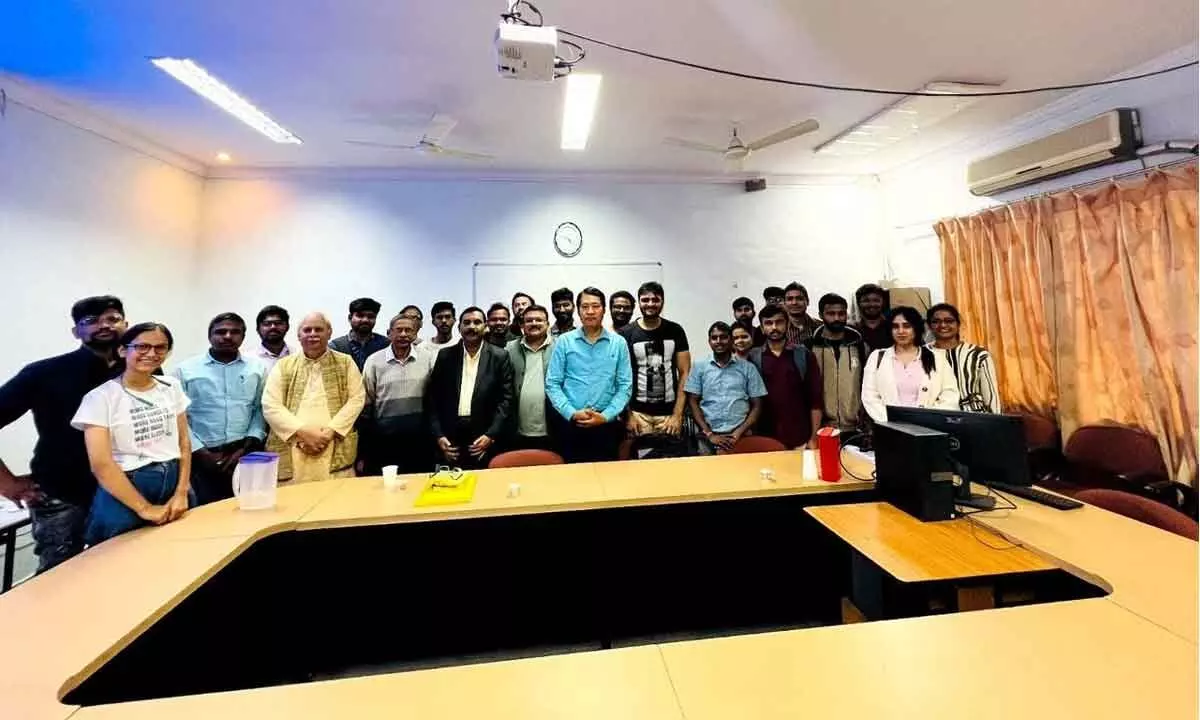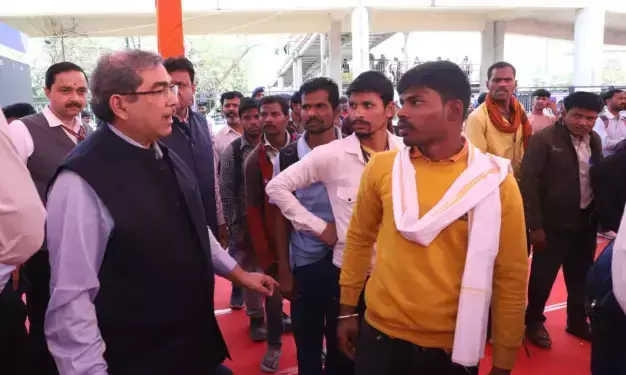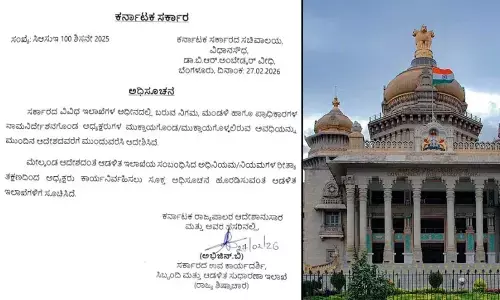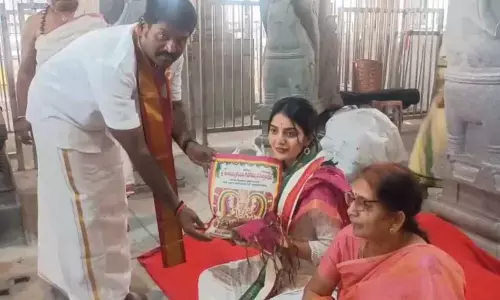Lecture on 'Indian economy @75; status & policies forward' delivered

The School of Economics, University of Hyderabad (UoH), organised a special public lecture on the topic “Indian Economy@75, Status and Policies Forward” by Professor Prakash S Kamble, who is currently a Senior Professor of Economics in the Department of Economics, Shivaji University, Kolhapur, Maharashtra in Hyderabad on Wednesday.
Hyderabad: The School of Economics, University of Hyderabad (UoH), organised a special public lecture on the topic "Indian Economy@75, Status and Policies Forward" by Professor Prakash S Kamble, who is currently a Senior Professor of Economics in the Department of Economics, Shivaji University, Kolhapur, Maharashtra in Hyderabad on Wednesday.
Prof Kamble spoke on empirical trends and patterns of economic growth of India since independence. The Indian economy has been showing growth in an increasing trend, on average, over time in terms of many growth indicators including gross income or gross domestic product (GDP) or even in terms of per capita income.
Total production figures for major sectors like agriculture and industry have also been increasing. Such growth has been possible due to various policies adopted by the central and state/UT governments. However, as pointed out by Prof. Kamble, such growth in aggregate quantitative numbers alone cannot tell us the true picture of economic growth and development of India. If we closely observe the empirical data across sub-sector levels or micro unit levels and various dimensions of the society including health care, education, income and wealth distribution, net foreign trade, school enrolment ratio, poverty and malnutrition, unemployment rate and work participation, inflation etc., one can understand that growth is not percolating down to meet the requirements of all.
Government spending on education and health has been very low as a percentage to overall GDP. Income inequality and concentration of wealth among a few rich people have been observed. Unemployment rate has been high even in urban areas and educated people. Prof Kamble said that all such issues and problems require deeper analysis and research. Long-run proper solutions to all such problems requires comprehensive policy measures, political will of the government and co-operations by all stakeholders. Economic growth is necessary but economic growth should reach everyone. Therefore, economic growth and development should be inclusive in nature.
Professor Kamble has more than 34 years of teaching experience to students at undergraduate, graduate, MPhil and PhD levels.
His current research interests are broadly in public economics, issues of Indian economy, environmental and resource economics.










